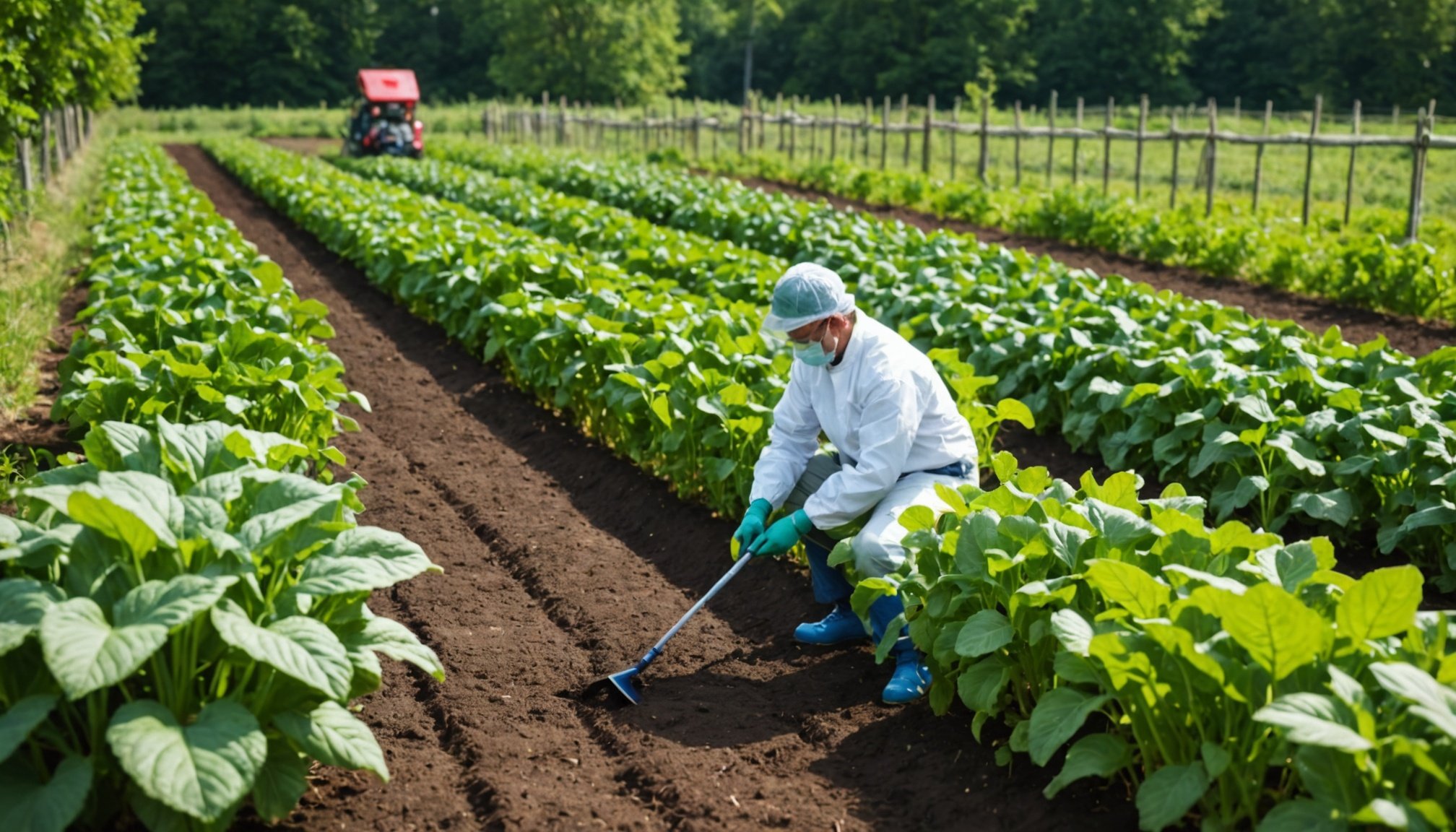In the vibrant world of vegetable gardens, pests often lurk in the shadows, eager to feast on the fruits of your labor. Among the lush leaves and thriving plants, it’s crucial to find a balance that allows your garden to flourish while keeping the unwanted intruders at bay. Embracing organic methods not only protects your produce but also ensures the environment remains unharmed. In this article, we explore the most effective strategies to maintain a healthy garden ecosystem, free from the grips of bugs and pests.
Understanding the Enemy: Common Garden Pests
Before implementing any control methods, it is essential to identify the pests that menace your garden. Aphids, beetles, and slugs are frequent culprits that can wreak havoc on your vegetable patch. Each of these pests presents unique challenges and requires tailored approaches to control.
Also to see : How do I choose the right soil for my potted plants?
Aphids
These small, sap-sucking insects can cause significant damage by depleting the vitality of your plants. Aphids often congregate on the undersides of leaves, leaving behind a sticky residue known as honeydew. This can attract other pests and lead to the growth of mold.
Beetles
From the pesky Colorado potato beetle to the voracious Japanese beetle, these insects chew through leaves and stems, compromising the health of your plants.
Topic to read : What are the key principles of permaculture gardening that I can apply at home?
Slugs
Often lurking in damp environments, slugs feed on the tender leaves and seedlings that are crucial for your garden’s development. Recognizing these threats early can save your garden from severe damage. Understanding your foe is the first step in developing a robust defense strategy.
Neem Oil: A Natural Solution
Among the arsenal of organic pest control methods, neem oil stands out as a formidable ally. Extracted from the seeds of the neem tree, this oil has been used for centuries in traditional farming practices due to its potent insecticidal properties.
How It Works
Neem oil disrupts the life cycle of insects by inhibiting their ability to feed, grow, and reproduce. It acts as both a repellent and a growth regulator, ensuring that pests are unable to inflict further damage on your plants.
Application Techniques
To effectively use neem oil, mix it with water and a mild soap to help it adhere to the plant surfaces. Spray this mixture directly onto the affected leaves, ensuring that the undersides are thoroughly coated. Consistency in application is key to maintaining a pest-free environment.
Benefits and Considerations
Neem oil is not only effective but also environmentally friendly. Its use does not harm beneficial insects such as ladybugs and bees, which play a vital role in maintaining garden health. However, it’s important to avoid over-application to prevent any potential build-up in the soil.
Companion Planting: A Strategic Defense
Companion planting is a centuries-old practice that utilizes the natural relationships between plants to deter pests. This method involves strategically placing certain plants next to others to create a symbiotic relationship that benefits both.
Selecting the Right Companions
Certain plants naturally repel pests. For instance, planting marigolds alongside your tomatoes can help deter aphids and nematodes. Basil, when placed near peppers, acts as a deterrent to flies and mosquitoes.
Creating a Balanced Ecosystem
By diversifying your garden with a variety of plants, you can attract beneficial insects that prey on common garden pests. Ladybugs, for example, are natural predators of aphids and can help keep their population in check.
Advantages of Companion Planting
This method not only helps in pest control but also enhances the overall health of your garden. Some plants enrich the soil with essential nutrients, while others provide shade and support to their companions, leading to a more resilient garden ecosystem.
Diatomaceous Earth: A Physical Barrier
A less conventional, yet highly effective, organic pest control method is the use of diatomaceous earth. This natural powder is composed of tiny fossilized sea creatures, making it a powerful tool against soft-bodied insects.
How It Works
When insects come into contact with diatomaceous earth, it absorbs the oils from their exoskeletons, causing them to dehydrate and perish. This method is particularly effective against slugs and other soft-bodied pests.
Application Guidelines
Dust a thin layer of diatomaceous earth around the base of your plants and on the leaves where pest activity is most prevalent. Be mindful to reapply after heavy rain, as moisture reduces its effectiveness.
Safety and Environmental Impact
Diatomaceous earth poses no harm to humans or beneficial insects when used correctly. It is a non-toxic alternative to chemical pesticides, providing a safe environment for you and your loved ones.
Adopting organic pest control methods in your vegetable garden not only safeguards your plants but also contributes to a sustainable and eco-friendly gardening practice. By understanding the specific challenges posed by common pests and employing a combination of strategies such as neem oil, companion planting, and diatomaceous earth, you can create a harmonious garden that thrives without compromising the environment. These methods are not only effective but also empower you to take active control of your garden’s health, ensuring a bountiful harvest for seasons to come. Remember, the key to a successful garden lies in nurturing a balanced ecosystem where plants and beneficial insects work in harmony to keep the pests at bay.











